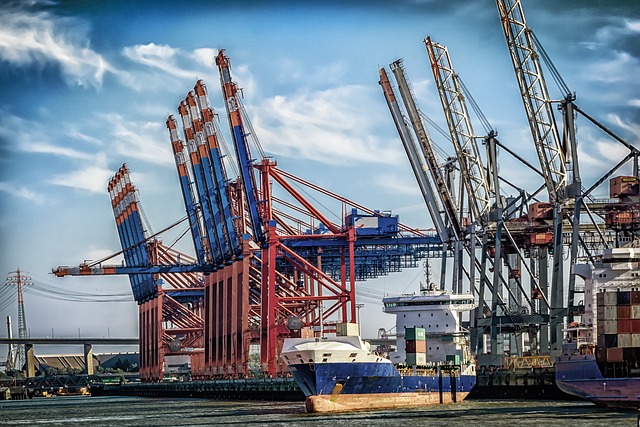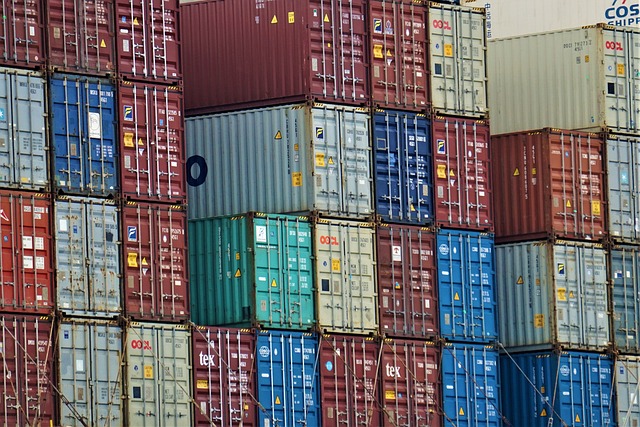TL;DR:
Accurate translations of Customs and Trade Documents are essential for legal compliance in UK international trade, preventing delays, penalties, and damaged relationships. Professional UK translation services employ native-speaking experts in customs terminology to ensure precision and clarity in paperwork like Invoices, Shipping Notes, and Certificates of Origin. These services stay updated on legal changes, offer industry-specific expertise, and prioritize fast turnaround times, making them crucial for smooth customs clearance and avoiding costly mistakes.
In today’s globalised marketplace, ensuring legal compliance with UK customs documents is paramount for businesses navigating international trade. This comprehensive guide delves into the intricacies of understanding and accurately translating these vital documents, highlighting the significance of professional UK translation services. From the fundamentals of customs declarations to future-proofing your business against regulatory changes, we explore best practices and common pitfalls to help you stay compliant.
- Understanding UK Customs and Trade Documents: An Overview
- The Importance of Accurate Translation in Customs Declaration
- Legal Requirements for Document Translation Services
- Choosing the Right Translation Provider for Your Business
- Common Mistakes to Avoid During Document Submission
- Future-Proofing Your Business: Staying Compliant with Changing Regulations
Understanding UK Customs and Trade Documents: An Overview

Navigating the complex landscape of UK customs and trade documents is essential for any business involved in international trade. These documents play a crucial role in ensuring legal compliance, facilitating smooth customs clearance, and preventing delays or penalties. Understanding the various types of customs and trade documents specific to the UK is the first step towards seamless operations.
The UK’s customs system requires businesses to accurately complete and submit critical paperwork, such as Customs Declarations, Shipping Notes, and Invoices. These documents must adhere to specific formatting and language requirements, which often necessitate professional UK translation services for non-English languages. Ensuring accurate translations is vital to avoid misunderstandings and legal issues, especially when dealing with technical terms or industry-specific jargon.
The Importance of Accurate Translation in Customs Declaration

Accurate translations are paramount in ensuring legal compliance with UK customs documents. With a vast array of international trade activities, it’s crucial that all information on customs and trade documents is conveyed precisely to avoid delays, penalties, or even legal repercussions. Professional UK translation services play a vital role here, as they provide language expertise to guarantee the accuracy and clarity of critical data.
When dealing with customs declarations, every word counts. Inaccurate translations can lead to misinterpretations, causing hold-ups at borders and potentially damaging business relationships. Reliable translation services employ native speakers with specialized knowledge in customs terminology to mitigate these risks. This ensures that essential details, such as product descriptions, quantities, and values, are correctly conveyed, facilitating smooth customs clearance processes for all UK-based businesses engaged in international trade.
Legal Requirements for Document Translation Services

When dealing with customs and trade documents in the UK, it’s paramount to understand the legal requirements for document translation services. Accuracy and precision are non-negotiable when translating crucial customs paperwork such as invoices, shipping manifests, and certificates of origin. Professional translation services must be engaged that possess a deep understanding of both the source and target languages, along with expertise in the specific terminology used within international trade.
Compliance with UK regulations demands that translations be carried out by qualified translators who can attest to the authenticity and integrity of the translated documents. This often involves obtaining official certifications or signatures from the translators to ensure their work stands up to scrutiny. Moreover, it’s essential that translation services keep abreast of legal updates and changes in customs requirements to provide up-to-date, reliable translations for businesses navigating the UK’s complex regulatory landscape.
Choosing the Right Translation Provider for Your Business

When it comes to customs and trade documents, accuracy and precision are paramount in the UK. Engaging a reliable UK translation service is therefore a crucial step for businesses looking to ensure legal compliance. The complexity of these documents demands experts who understand not just the language but also the intricate regulations involved.
Choosing the right provider means considering factors like expertise in your industry, adherence to local laws and standards, and efficient turnaround times. Look for professionals who can offer native-level accuracy and are equipped to handle a wide range of customs and trade documents, from invoices and packing lists to certificates of origin and customs declarations.
Common Mistakes to Avoid During Document Submission

When submitting customs and trade documents in the UK, businesses often fall into common pitfalls that can lead to delays or even penalties. One of the primary mistakes is incomplete or inaccurate documentation. Every item requires a detailed description, correct classification codes, and the right quantity and value information. A single oversight can cause issues during the customs clearance process.
Another frequent error is neglecting the requirement for professional UK translation services when dealing with non-English documents. Customs authorities insist on clear and precise language to ensure compliance. Using unreliable or amateur translation services may result in incorrect interpretations, leading to unacceptable documentation. It’s always best to engage qualified translators who understand the nuances of customs and trade terminology to avoid these costly mistakes.
Future-Proofing Your Business: Staying Compliant with Changing Regulations

In today’s dynamic business landscape, staying ahead of regulatory changes is vital for any company conducting international trade within the UK. Customs and trade documents play a crucial role in ensuring legal compliance, and as regulations evolve, so do the requirements for these documents. Future-proofing your business involves proactively adapting to these changes, especially when it comes to customs procedures and documentation. One effective strategy is to invest in professional UK translation services that keep pace with regulatory updates.
By engaging specialized translators, businesses can ensure their customs documents are not only accurate but also up-to-date with the latest legal terminology and requirements. This proactive approach minimizes the risk of errors, delays, or penalties associated with non-compliance. As the world of international trade continues to transform, staying current with regulatory changes and leveraging translation services will be key to maintaining a competitive edge while adhering to UK customs regulations.
Navigating the complex landscape of UK customs and trade documents requires meticulous attention to detail, especially when it comes to accurate translations. As businesses operate in an ever-changing regulatory environment, ensuring legal compliance is vital for seamless operations. By understanding the significance of precise translations, selecting a reputable translation provider, and staying informed about evolving regulations, companies can confidently manage their customs documentation, minimising potential errors and penalties. With the right approach, UK businesses can effectively harness the power of professional translation services to keep up with customs requirements, fostering growth and international trade opportunities.



